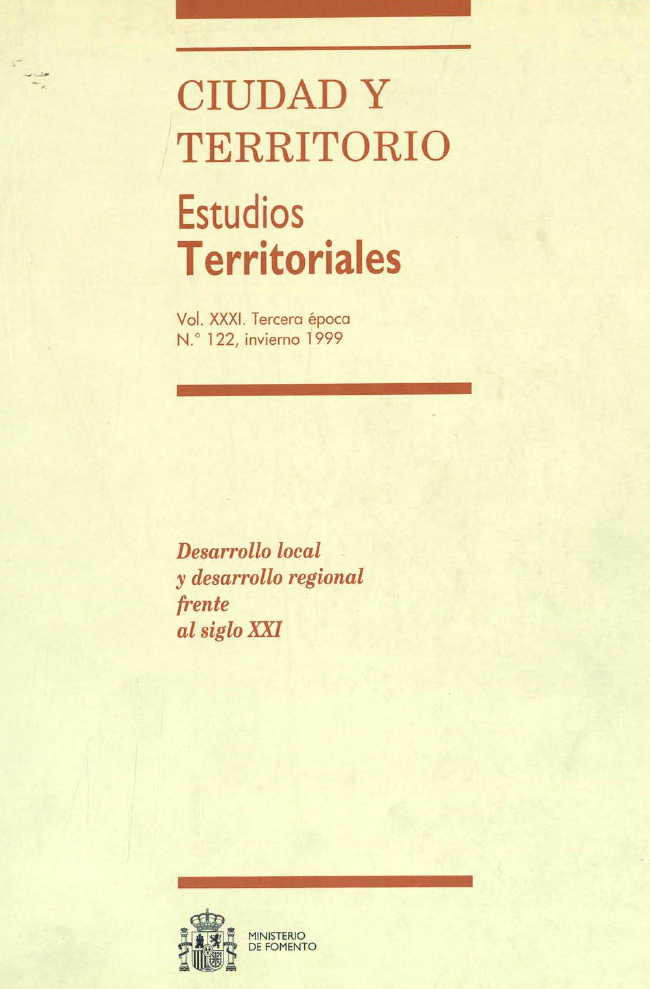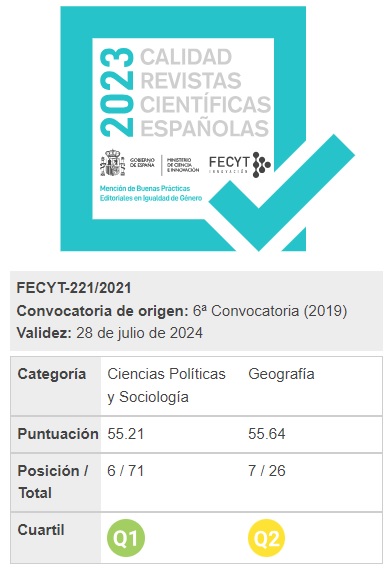Regional/Local Development in the European Union in the outcome of the XXI century". New intervention guidelines on innovation and employment processes: innovation and employment territorial strategies
Keywords:
Innovación tecnológica, Redes, Clusters, Localización industrial, Estrategias de desarrollo, EmpleoAbstract
As innovation and the speed of technical change have generated a new framework characterised by the importance of the territory as a generating source of specific resources (abilities, know-how, qualifications), the author holds them to be the most suitable level at which to stimulate processes of co-operation and learning. We are told that in this context a wide range of concepts have emerged, such as " industrial districts ", "clusters ", networks, competitive poles, that stress the same idea of the importance of establishing inter and intra-sectorial business networks or link-ups that, territorially embedded, would stimulate competitiveness. In this paper, important connections have been identified as between innovation processes and changes in employment generation processes, as well as to the opportunities resultant upon interrelated territorial strategies design. The principal conclusion the author propounds is a need for the drawing up of a Territorial Employment and Innovation Strategy that could forge links between innovation and employment, thus leading to the creation of employment from the opportunities offered by innovative environments.
Downloads
Downloads
Published
How to Cite
Issue
Section
License
Copyright (c) 1999 Belén Berroeta, Jaime del Castillo, Elvira Uyarra

This work is licensed under a Creative Commons Attribution-NonCommercial-NoDerivatives 4.0 International License.
Considering the provisions of the current legislation on Intellectual Property, and in accordance with them, all authors publishing in CyTET give -in a non-exclusive way and without time limit- to the Ministry of Transport, Mobility and Urban Agenda the rights to disseminate, reproduce, communicate and distribute in any current or future format, on paper or electronic, the original or derived version of their work under a Creative Commons Attribution-NonCommercial-NoDerivative 4.0 license International (CC BY-NC-ND 4.0), as well as to include or assign to third parties the inclusion of its content in national and international indexes, repositories and databases, with reference and recognition in any case of its authorship.
In addition, when sending the work, the author(s) declares that it is an original work in which the sources that have been used are recognized, committing to respect the scientific evidence, to no longer modify the original data and to verify or refute its hypothesis. Author(s) also declare that the essential content of the work has not been previously published nor will it be published in any other publication while it is under evaluation by CyTET; and that it has not been simultaneously sent to another journal.
Authors must sign a Transfer of Rights Form, which will be sent to them from the CyTET Secretariat once the article is accepted for publication.
With the aim of promoting the dissemination of knowledge, CyTET joins the Open Journal Access (OA) movement and delivers all of its content to various national and international indexes, repositories and databases under this protocol; therefore, the submission of a work to be published in the journal presupposes the explicit acceptance by the author of this distribution method.
Authors are encouraged to reproduce and host their work published in CyTET in institutional repositories, web pages, etc. with the intention of contributing to the improvement of the transfer of knowledge and the citation of said works.








 Enlace a CyTET en Linkedin
Enlace a CyTET en Linkedin